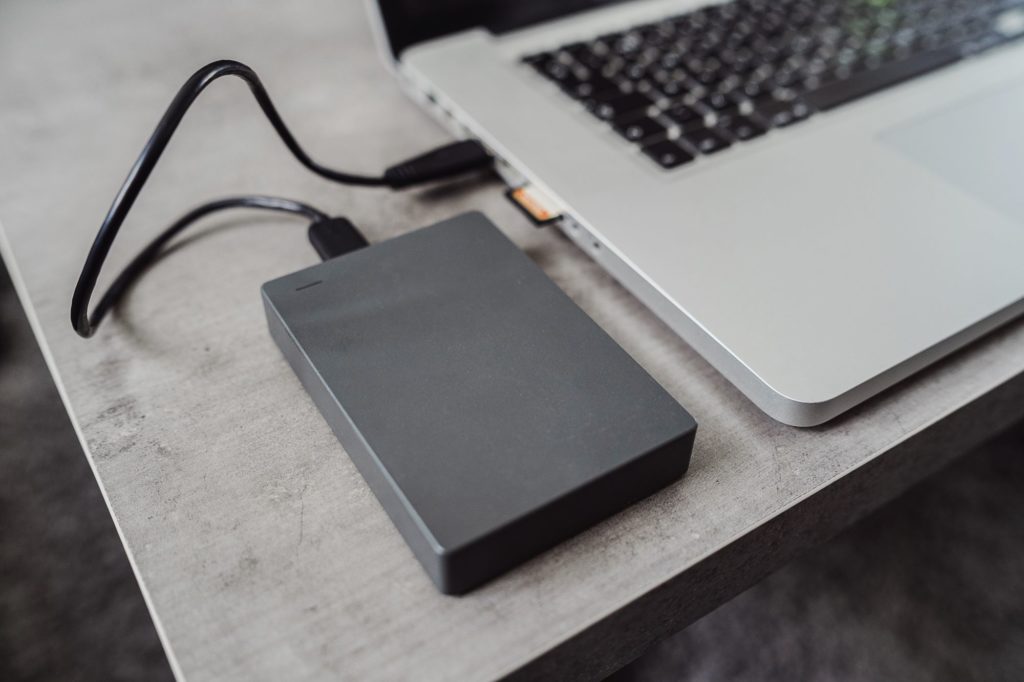From cluttered inboxes, overflowing desktops, thousands of photos on your phone, or apps you no longer use, a lack of digital organization can make it difficult to find what you need and slow down your devices. Unsurprisingly, this digital clutter can also cause frustration, stress, and inefficiency. Let’s explore a few organization tips that can help you streamline your devices, save space, and help you feel more at peace in your digital spaces.
What is Digital Clutter?
Digital clutter refers to the accumulation of unnecessary or disorganized files, apps, emails, photos, and other data on your devices. Just like physical clutter, digital clutter can make it hard to find what you’re looking for, take up valuable storage space, slow down your devices, and increase the risk of losing important information. Keeping your digital life organized can improve your productivity, free up storage, and improve your overall experience.

1. Declutter Your Desktop and File Folders
A cluttered computer can make it hard to find what files you need. It can also slow down your computer’s performance! Keeping your desktop and folders organized can significantly improve efficiency and prevent important documents from getting lost. By freeing up system resources and creating clear folder structures, you can enjoy a smoother, more productive workflow.
You can do that by:
- Organizing files into folders: Sort documents by category (work, personal, finances) and create subfolders for better structure. Add folders to organize by date or year if this would be helpful.
- Making files searchable: Rename your files so they come up in search when you need them. It can be much easier to find your tax returns from previous years when they are named “2021 Tax Returns” and not “1040_fixed_final_for_real_this_time.pdf.”
- Archiving old files: Regularly move files you no longer need into an archive folder, cloud folder, or external drive to reduce clutter.
- Setting a regular reminder: Make it a regular habit to tidy your desktop and put files in their proper folders.
2. Take Control of Your Email Inbox
An overflowing inbox can lead to missed messages, stress, and lost time. Keeping your inbox organized can help you respond efficiently and find emails quickly. This reduces the risk of missing important emails, losing email attachments, and can even protect your privacy by minimizing spam.
Try these tips:
- Unsubscribe: Remove yourself from mailing lists you no longer need to be on.
- Use folders or labels: Create categories for important emails, like work, personal, and bills, and move messages to these folders after reading.
- Schedule email clean-up: Set aside time each day to organize and delete emails to avoid an overwhelming backlog.
3. Organize Your Photos and Videos
Photos and videos can quickly eat up storage space on your devices, and a lot of media content can make it difficult to find specific files when you need them. By organizing your media library, you’ll not only free up space on your device but also make it easier to locate and backup important photos.
To get started:
- Use cloud storage: Store your media on platforms like Google Photos, iCloud, or Dropbox, which offer organized, searchable albums.
- Create albums: Sort your photos by event, year, or category for easy access later.
- Set up automatic backups: Regularly back up your media to cloud storage or external drives to avoid losing important memories. With the photos safely copied elsewhere, you can delete them on your device and clear up storage space.
4. Regularly Clean Up Apps and Software
Unused apps can take up valuable storage and pose security risks if they aren’t updated regularly. Organizing your apps can also help your device run more efficiently. Plus, a well-organized home screen and app library makes it easier to access the tools you use most.
Here’s how to keep apps in check:
- Uninstall unused apps: Remove apps you no longer use to free up space and reduce the chance of security breaches from outdated software.
- Organize apps into folders: Group similar apps (work, fitness, social media) to streamline your home screen.
- Update apps regularly: Enable automatic updates or update your apps regularly for security patches and performance improvements.

5. Backup and Secure Important Files
Losing important files due to device failure, malware, or accidental deletion can be devastating. Regularly backing up your files and organizing them into an easy-to-navigate system protects your data and keeps it accessible. This simple step can protect you from future headaches and keep your digital life running smoothly.
Get started with these tips:
- Use cloud storage: Platforms like Google Drive, OneDrive, iCloud Drive, Dropbox, and BackBlaze allow you to store and organize files safely in the cloud.
- Automatic backups: Set up regular backups of essential files to an external drive or cloud service.
- Create an organized filing system: Use labeled folders to categorize your files so you can easily find important documents.
Keeping your digital world organized isn’t just about the aesthetics—it’s about efficiency, security, and peace of mind. By decluttering your desktop, managing your email inbox, organizing photos, cleaning up apps, and backing up important files, you can reduce the stress of digital clutter and improve your overall productivity. Take a little time to tidy up your devices (and commit to keeping them organized), and you’ll enjoy the benefits for months to come!